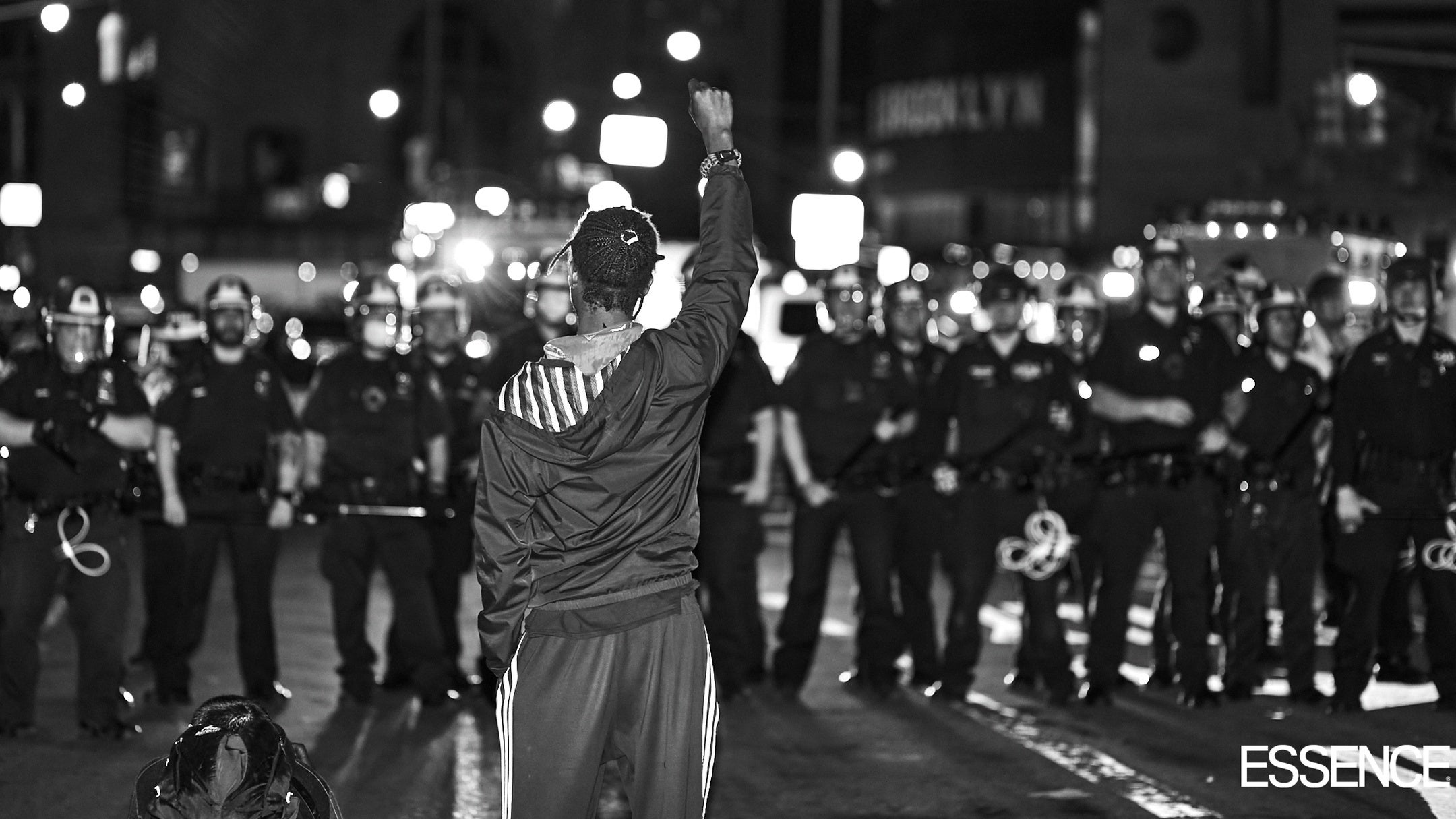The season is changing.
Twenty-five days ago, George Floyd was murdered by the Minneapolis Police Department.
Spring slid into summer and millions of people put on face masks and took to the streets. They’re still there, refusing complacency in the face of twin pandemics: the preventable spread of COVID-19 and the unwillingness of our political leaders to end police violence. As these courageous people put their bodies in the streets and assert our shared commitment to Black life, Trump incites further violence, and the calls for his resignation ring louder by the day.
The demands are clear: divest from policing and invest our communities. Our rebellion is yielding results.
School districts in Minneapolis, Seattle, and Denver have pledged to remove police from their schools. In two of the nation’s three largest school districts, Los Angeles and Chicago, teachers unions are fighting to make their schools police-free.
Statues of Confederate leaders and others who held people in slavery are coming down around the country.
Transit unions in Minneapolis, Pittsburgh, New York City, Chicago, San Francisco, Washington DC, and Boston have refused to transport protesters arrested by the police. In Minneapolis, Boston, and Pittsburgh they also refused to transport the police.
New York repealed a law, known as Section 50-a, which kept police disciplinary records secret, opening them up to the public for the first time in decades.
On June 7, the Minneapolis City Council voted unanimously to eliminate its police department and replace it with a community-anchored alternative. This week, the Los Angeles City Council introduced a measure to establish a crisis response team to replace police officers when responding to resident calls about substance abuse and mental health; this follows the city’s decision to cut $150 million from the LAPD’s budget.

Millions of Americans are reckoning with the idea of police abolition, and beginning to imagine the alternatives. What seemed impossible mere weeks ago has already happened — a season transformed by the sun, ripe for the bloom.
Our memories are long; we have known moments of profound victories and also grave loss. There is honor in remembering and not allowing ourselves or this nation to forget its debt to Black people.
Never has there been a time in United States history when the police were not a force of violence against Black people. In the South, policing started in the form of slave patrols, whose purpose was to catch and return fugitives from slavery. In Northern states, the first police departments in the mid-1800s quashed labor strikes and riots against the abuses of the wealthy. This is their legacy, their rotten core. Our memories are long and we have not forgotten this.
One hundred and fifty-five years ago today, in Galveston, the enslaved people of Texas were informed that in accordance with the Emancipation Proclamation issued more than two years prior, all enslaved people were free. Today, on this anniversary of that first Juneteenth, we celebrate our resilience, our unrelenting dedication to Black people, to our own freedom, and each and every victory in the face of constant violence. Our memory is long. We will always honor our ancestors.
Today, we honor the memories of George Floyd, Breonna Taylor, Tony McDade, Ahmaud Arbery, Rayshard Brooks, Mike Brown, Sandra Bland, Dominique “Rem’Mie” Fells, Riah Milton, and each and every brilliant Black life stolen from us by the hands of the police and vigilante violence.
We look back, honoring their memory and holding it as a blessing for the days ahead. We look ahead, at all the victories that will soon come. We see the future when we will ensure that all Black lives matter—no matter our gender, sexuality, class, or background.
Summer has arrived. Welcome to Six Nineteen.
Karissa Lewis is the National Field Director for the Movement for Black Lives. The Movement for Black Lives is a national network of over 150 leaders and organizations creating a broad political home for Black people to learn, organize, and take action.
